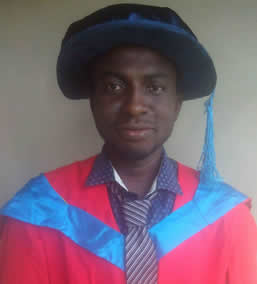DEPARTMENT OF PHYSIOLOGY
PHILOSOPHY
The BSc. Physiology programme involves a well-rounded training in the fundamentals of normal functioning of the human body systems in a milieu of interdisciplinary and interdependency of biomedical sciences. The theoretical and practical inter-relativity of the course is interwoven with other biomedical sciences. Ithas been well emphasized in order to produce graduates that can stand shoulder to shoulder with local and international contemporaries.
The students will receive up to date training in theoretical, practical and applied physiology to make them suitable to utilize the basic knowledge for future problem solving and other applications in the practice of medicine, nursing, pharmacy, physiotherapy among others. The graduates should also be able to function as entrepreneur whether in public service or self-employed.
Students will undergo intense training in Cardiovascular, Gastrointestinal, Endocrine, Respiratory, Neurologic, Renal and Cutaneous physiology, and relevant areas of anatomy and biochemistry. Other areas to be taught include Human Genetics, Embryology, Psychology, Comparative physiology, Exercise physiology, Immuno-physiology, aviation physiology, in addition to practical laboratory skills and experimentation.
At the end of their training, graduates of the programme will be conversant and comfortable in applying the acquired knowledge in their field to participate and conduct elegant research in physiology towards solving the various pathological problems when the human physiology is altered.
The programme will be sufficiently broad-based to lead to the production of graduates who will be able to perform the following functions:
(i) To train students to acquire basic knowledge of physiological principles;
(ii) To provide a basis for understanding the physiology and biochemistry of model
(iii) Systems that can be used for studying the reciprocal effects of humans and their environment as well as the effect of toxicants on them.
(iv) To train students to acquire sufficient practical knowledge and skills in experimental physiology;
(iv) To train students to have knowledge of applied physiology as used in medicine, pharmacy, nursing, veterinary medicine, medical and dental sciences;
(v) To educate students who will be able to apply physiology knowledge to real life situations;
(vi) To equip students in physiological knowledge sufficient for them to proceed for further studies in related fields of specialization; and
(vii) To produce graduates who can adapt to various life situations.


